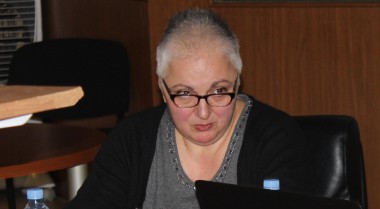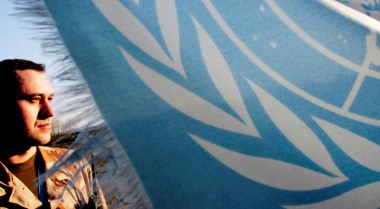
International Protection for Local Peacebuilders
Peacebuilders and human rights defenders share a dedication to the protection of people. In fact, a lot of peacebuilders are also human rights defenders, and vice versa. Both are often at risk because of the work that they do. However, where human rights defenders have some specific protection in international law, no such protection exists for peacebuilders.
While there are some clear similarities in the objectives of human rights defenders and peacebuilders worldwide, there remains a distinction in the way each group is considered by the international community when it comes to their safety and security. Despite both groups serving the same or similar goals conflict prevention, sustainable peace and the defense of human rights, each utilises different methods and therefore plays different roles before, during and after a conflict. Peacebuilders remain excluded, invisible and unprotected by the international community due to the nature of their work.
International protections for human rights defenders, not local peacebuilders
The existing international frameworks to protect local organisers and activists explicitly protect human rights defenders. They are covered by the 1998 UN Declaration on Human Rights Defenders, which promotes and protects the realisation of human rights and fundamental freedoms. It has also provided increased recognition and visibility for human rights defenders, paving the way for the establishment of the mandate of the Special Rapporteur on the situation of Human Rights Defenders.
Of course, protection on paper does not always mean true protection: There is a significant implementation gap between the UN Declaration and national laws and policies to support and protect defenders, and more than 300 human rights defenders were killed in 2019 alone. Legislation and international commitments remain important steps towards protection however.
But is a local peacebuilder a human rights defender? Peacebuilders do act to address any human rights; however, they do so on a more technical level, through capacity building, influencing policy and enabling collaboration. In this, local peacebuilders are only able to attend meetings if Chatham House rules are applied to ensure their safety and mitigate pressure from the political establishment.
What is important here is that peacebuilders are not as much “watchdogs” for international accountability, but rather “technical and community experts”. However, their close proximity to those in power coupled with the lack of protection mechanisms can put their critical work at risk. The principles of international law that serve to protect human rights defenders, unfortunately, do not reflect the situation of peacebuilders.
Local peacebuilders are invisible in international law
The process behind the invisibility of local peacebuilders in many contexts is sequential.
The first step is politicization: In the South Caucasus, as in many other contexts, the term ‘peacebuilder’ is used as a synonym for human rights activist. At the same time, human rights advocacy is often politicised and regarded as anti-state activism. Peacebuilders, as a result, are often marginalised and sometimes even detained or imprisoned for their activities due to the lack of understanding of local peacebuilding work and existing stereotypes.
The second step is limiting opportunities: The politicisation of peacebuilding work not only affects the protection of peacebuilders, but also the types of work they can successfully carry out. Internationally-recognised peacebuilding mandates, such as peace mediation, are not fully understood or utilised in this politicised climate, leading to their neglect. As a result, peace negotiations are seen as elitist and foreign. Current peace processes are not considered inclusive, limiting the sense of ownership for peace in the communities.
The third step is unavailable funding: In situations like the South Caucasus, where local peacebuilding is politicised and invisible and where there is no peace mandate, available financial resources do not support work of local peacebuilders. In the situation where the South Caucasus has been delegated to the “backyards” of the international peace agenda, justifying funding for local peacebuilding is even more complicated.
What can we do?
In order for the work of local peacebuilders to be adequately supported, the United Nations should mobilise its membership to understand and protect the role and unique security challenges faced by local peacebuilders. This can be done through increased visibility of the contribution of local peacebuilders at the regional and international levels, working with Member States to further encourage the recognition of the “peace dividends” of community engagement, and diversifying funding to support local peacebuilding in regions that require most support.
Using its influence and leverage, the United Nations can make a critical step towards supporting local peacebuilding efforts: recognising the work and needs of local peacebuilders as critical and distinct priorities of its work!
By Kateryna Gabak and Marina Kumskova
This article is based on the experiences of local peacebuilders in the South Caucasus, the situation elsewhere may differ.

